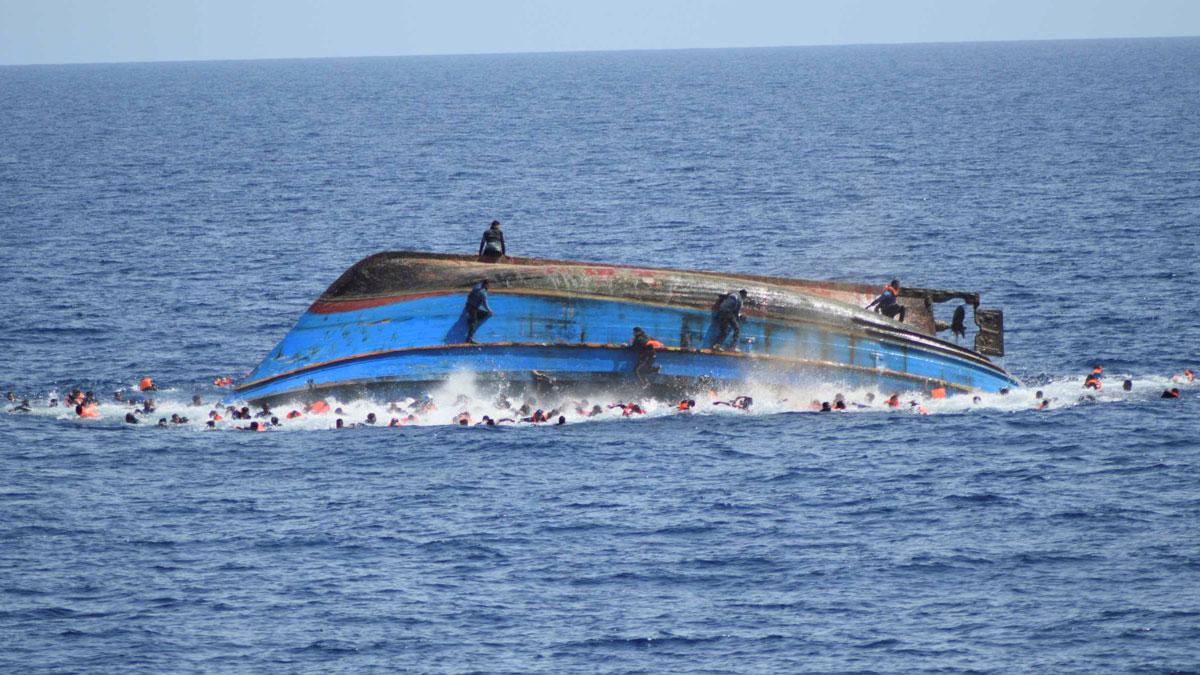Migrants are seen on a capsizing boat before a rescue operation by Italian navy ships off the coast of Libya in this handout picture released by the Italian Navy.
Europe is wrestling with what to do about migration. The world now has more refugees and displaced people than at any time in history: 65 million to be precise. And millions more people are trying to get away from poverty and crime in many parts of Africa and Asia.
Many Europeans have strong humanitarian instincts, and want to help the world’s poor and suffering. But these instincts conflict with fears of the cultural transformation that might result from mass migration. In other words, politicians are scared of a right-wing backlash.
Illegal migration to the US is way down, for a variety of reasons. In part it has to do with tougher enforcement at the border, a tough stance on deportation, a weak economy, and better economic and political stability in the countries of Latin America, especially Mexico, that used to supply so many migrants, documented and undocumented.
Meanwhile in Europe, illegal migration is surging. What lessons can Europe learn from America?
James Traub writes in Foreign Policy “that to stay open, Europe needs to close its doors.” If you have a subscription, you can access it here.
Traub argues that some kind of grand bargain is needed between Europe’s governments and its voting publics.
He draws a parallel with the United States. “In order to be able to placate people and create the political space to do the right thing — which means taking Syrian refugees and means taking migrants who strengthen America — the administration needs to show that it 'gets it' about people’s fear on issues of border enforcement. So it has tried to forge a deal in which it says, 'OK, we’ll increase border enforcement in order to get public approval to do other things.'”
“Leaders have to be willing to take publics where they don’t very much want to go,” says Traub, “but they can’t get too far out ahead of them.”
Failure in Europe to distinguish between legitimate refugees and other types of migrant, says Traub, could send the message to “millions or maybe tens of millions of people in dysfunctional countries in Africa and elsewhere that I can leave because Europe and others will have to take me.”
